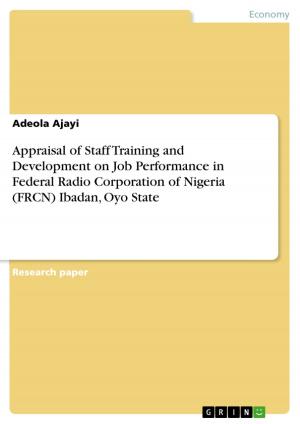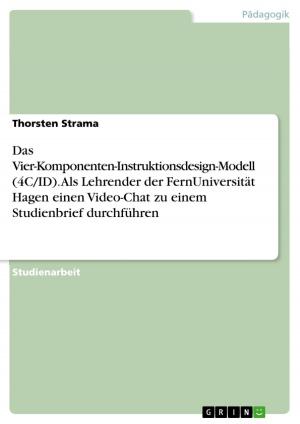Developing a Destination Branding Framework for Tourism Development in Zimbabwe
Business & Finance, Industries & Professions, Hospitality, Tourism & Travel| Author: | Kumbirai Mirimi | ISBN: | 9783668616608 |
| Publisher: | GRIN Verlag | Publication: | January 19, 2018 |
| Imprint: | GRIN Verlag | Language: | English |
| Author: | Kumbirai Mirimi |
| ISBN: | 9783668616608 |
| Publisher: | GRIN Verlag |
| Publication: | January 19, 2018 |
| Imprint: | GRIN Verlag |
| Language: | English |
Master's Thesis from the year 2016 in the subject Tourism, grade: 2.1, , course: Tourism Management, language: English, abstract: It is widely agreed that the recent history of economic crisis in Zimbabwe had negative effects on tourism in the country. Soon after a decade of political and economic instability, Zimbabwe is faced with several challenges to position the destination in an increasingly competitive global marketplace and to create a unique identity to differentiate itself from competitors. Thus destination branding can be a strategic marketing component with considerable importance in promoting the discovery of the country severely impacted by a volatile economic and political environment. This study sought to develop a destination branding framework for tourism development in Zimbabwe based on stakeholders' perspectives. The underpinning objectives were, to determine the nature of Zimbabwe's tourism destination brand, to establish the tourism destination branding process in Zimbabwe, to identify the benefits of destination branding for tourism stakeholders in Zimbabwe, to identify the development preferences about destination branding in Zimbabwe and to determine the destination branding support strategies for tourism development in Zimbabwe. A positivist philosophy was adopted for the study with a quantitative approach. The study made use of a cross-sectional survey design with a sample of 417 randomly selected tourism stakeholders. Data were analysed in SPSS with AMOS for structural equation modelling. Major findings indicate that, the nature of a tourism brand, destination branding process and branding benefits have a positive influence on stakeholder preferences about destination branding. Ultimately stakeholder preferences about destination branding have a positive influence on support strategies for destination branding. A framework was proposed basing on these findings. This framework may contribute to creating and integrating a value added destination brand to enhance tourism development in Zimbabwe. More importantly, the research findings may help Destination Management Organisations, tourism planners and policy-makers to understand what tourism stakeholders prefer in developing the country's brand and to plan and implement sound destination branding strategies.
Master's Thesis from the year 2016 in the subject Tourism, grade: 2.1, , course: Tourism Management, language: English, abstract: It is widely agreed that the recent history of economic crisis in Zimbabwe had negative effects on tourism in the country. Soon after a decade of political and economic instability, Zimbabwe is faced with several challenges to position the destination in an increasingly competitive global marketplace and to create a unique identity to differentiate itself from competitors. Thus destination branding can be a strategic marketing component with considerable importance in promoting the discovery of the country severely impacted by a volatile economic and political environment. This study sought to develop a destination branding framework for tourism development in Zimbabwe based on stakeholders' perspectives. The underpinning objectives were, to determine the nature of Zimbabwe's tourism destination brand, to establish the tourism destination branding process in Zimbabwe, to identify the benefits of destination branding for tourism stakeholders in Zimbabwe, to identify the development preferences about destination branding in Zimbabwe and to determine the destination branding support strategies for tourism development in Zimbabwe. A positivist philosophy was adopted for the study with a quantitative approach. The study made use of a cross-sectional survey design with a sample of 417 randomly selected tourism stakeholders. Data were analysed in SPSS with AMOS for structural equation modelling. Major findings indicate that, the nature of a tourism brand, destination branding process and branding benefits have a positive influence on stakeholder preferences about destination branding. Ultimately stakeholder preferences about destination branding have a positive influence on support strategies for destination branding. A framework was proposed basing on these findings. This framework may contribute to creating and integrating a value added destination brand to enhance tourism development in Zimbabwe. More importantly, the research findings may help Destination Management Organisations, tourism planners and policy-makers to understand what tourism stakeholders prefer in developing the country's brand and to plan and implement sound destination branding strategies.















